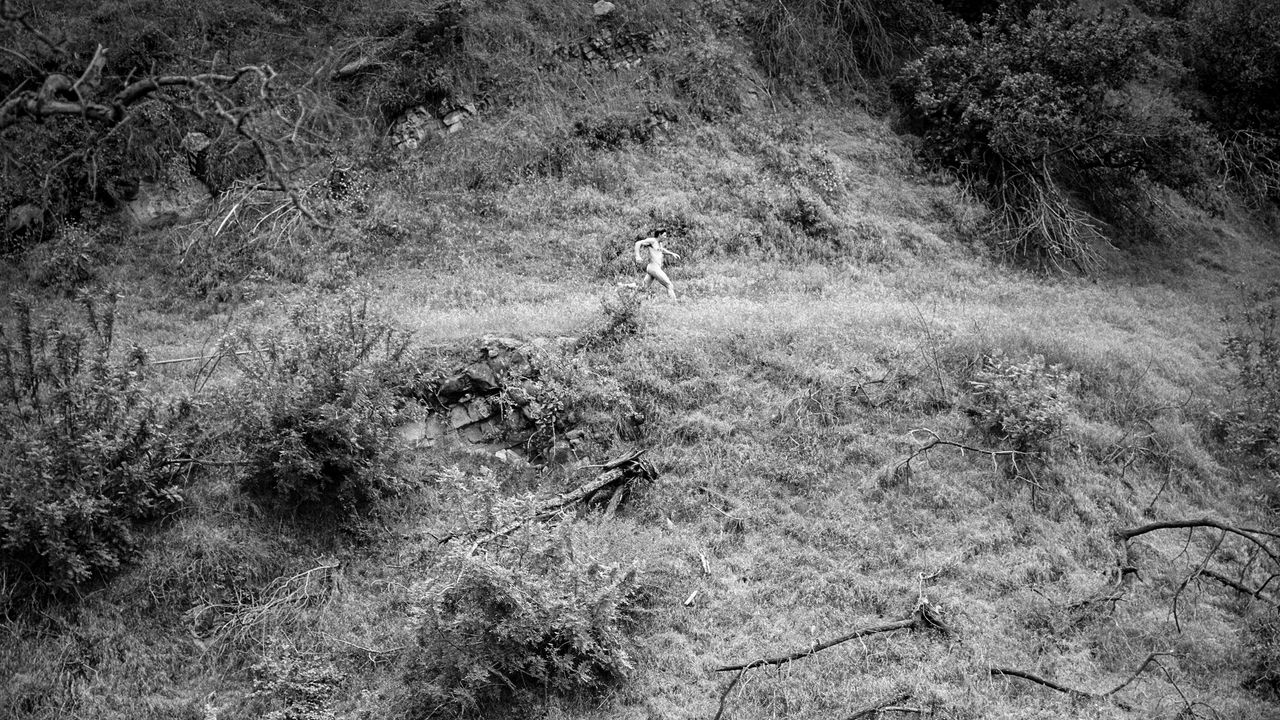A soft susurrus of breath cedes to the sound of fingers sliding over nylon guitar strings on “Holy Equation,” the opening track of Anna Tivel’s Animal Poem. “I’m waking up early, I’m bussing the tables/This whole thing is really a hopeless equation,” she sings before a mournful saxophone shimmers atop the formica. On the folk singer’s seventh studio album, her songs are more indictment than invitation: Witness the world we’ve made, and let your revulsion move you.
While the Portland songwriter’s previous records have consistently chronicled the downtrodden, Animal Poem brings sharper teeth to the effort, delivering searing condemnations of indignities that have become so common as to feel pedestrian. The title track, a defeated snare-drum shuffle, describes “characters in constant pain/Reaching for a way to taste some beauty,” from a panhandling mother with a cardboard sign to a magpie looking for a diamond in the dying grass.
Tivel is at her best when the visions arrive whole and detailed, as tactile and searing as the hood of a hot car. “Hough Ave, 1966,” a retelling of Cleveland’s Hough Uprisings is particularly heartbreaking in this sense, like a 21st-century murder ballad. “The plane touched down, Cleveland, Ohio,” she sings like someone staring into a whiskey glass. “I raised my collar to the cold/On the cab ride home, that song was playing/‘Don’t let me be misunderstood.’” She describes someone “raised on soul and running hungry,” whose search for love in “rock’n’roll or god and country” ends with them living in a car, then bleeding out on a city corner. “There’s a reason for your death now,” she promises over and over again, and maybe it’s the reiteration that makes this claim seem desperate, like she wishes, impossibly, that it could soften the violence.
There’s hope here, albeit measured. “White Goose” pads tentatively through its opening bars before a turn towards the jazzy. When Tivel’s not chronicling mammalian despair, she’s a wizard on par with The Weather Station at turning nature into a character unto itself. “A green so bright and tender, I got high enough to let it blow my mind,” she sings. Remembering a childhood goose hunt, “crimson rose blooming across the empty wildness he fell out of,” she lies down in the field “to feel something/Small and lost and full of thanks.” The lyrics are so poetic they could evoke wonder in total silence, but the instrumentation is just as pristine: Sam Weber’s rubber-bridge guitar bounces jubilantly between Tivel’s voice and the parade of ecological marvels she describes, while Galen Clark’s piano apes the burbling brook, the polyrhythms of birdsong or rustling grass.
